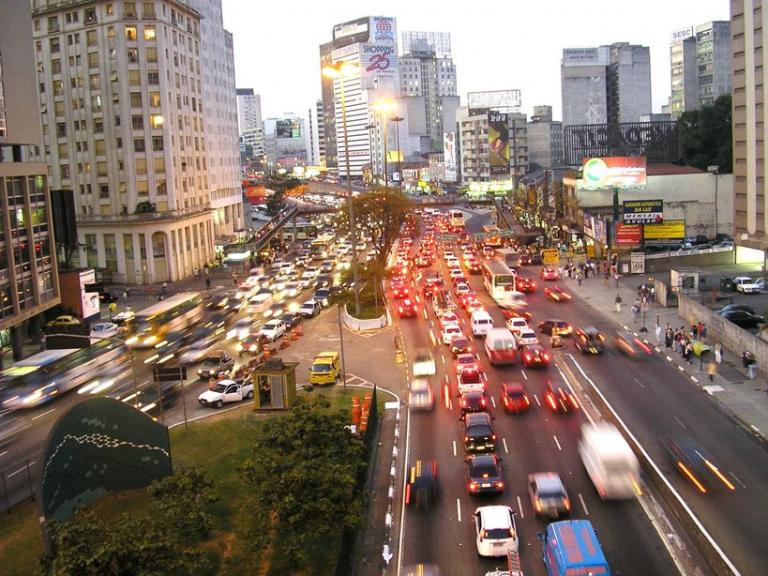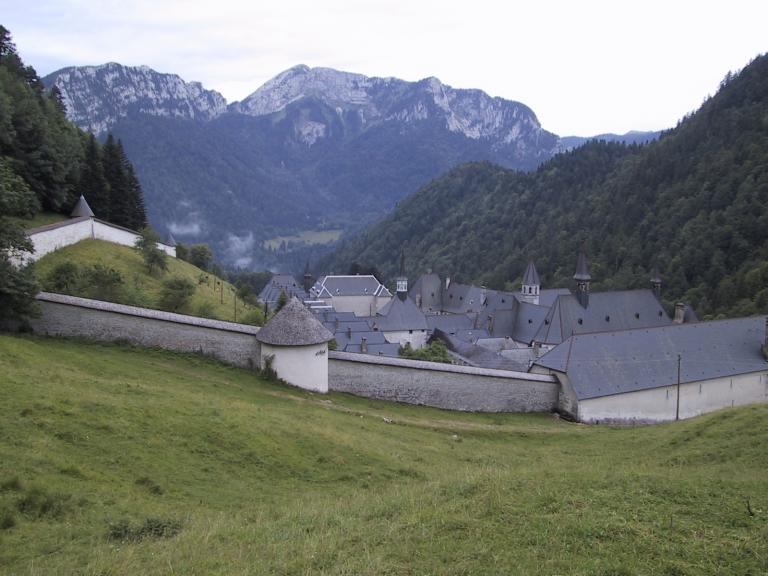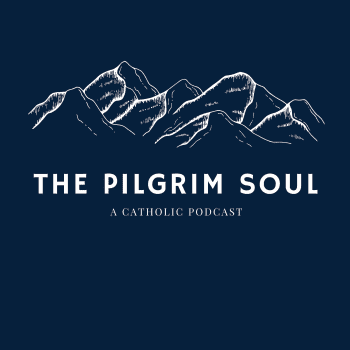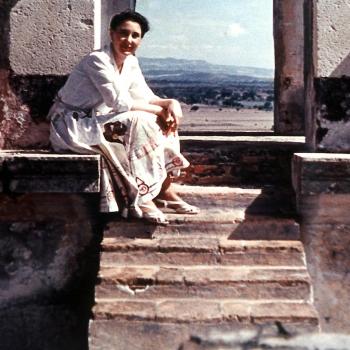Our modern world is dominated by noise, external and internal noise that damages our brain function and our spiritual life.
The dictatorship of noise
The postmodern person, according to Robert Cardinal Sarah, lives under a dictatorship of noise. In a long interview with French journalist Nicolas Diat, entitled The Power of Silence, Sarah takes on the worldly powers that strip us of silence.
“Noise surrounds us and assaults us. The noise of ceaselessly active cities, the noise of automobiles, airplanes, machines outside and inside our houses. Besides this noise that is imposed on us, there are the noises that we ourselves produce or choose. Such is the soundtrack of our everyday routine” (83).
We are inundated with noise. This “sad drug” of agitation acts as “a tranquilizer, a sedative, a morphine pump, a sort of reverie, an incoherent dream-world” (33). In other words, we live in a hellish version of Plato’s cave. Noise distracts us, anesthetizes us from the pain of the human condition.

But the comfort of noise is a false and deceptive. Noise stifles the interior life, drowning out the sound of God’s silence. Thus, as it comforts us, noise also sickens us by excluding God from our lives. Noise makes us less human. Sarah writes that we are capable of atrocities because we live for “our gargantuan ambition to transform the world for our selfish benefit alone” (40).
We are desperately in need of exterior and interior silence.
Our neurocognitive need for silence
The dictatorship of noise damages the brain. Incessant sensory input through the auditory cortex drains cognitive resources. In other words, constant stimuli from the environment overwhelm the brain and interfere with its functioning. This overload can spiral into anxiety, rumination, and persistent distraction.
Silence is essential for brain health. In just two minutes, silence relieves tension and lowers the level of stress hormones cortisol and adrenaline. Periods of silence throughout the day enhance sleep and lessen insomnia. As the time spent in silence increase, there’s evidence that it promotes neurogenesis – the birth of new brain cells – in key regions linked to learning and memory.
Clearly, lowering sensory input – silencing external noise – is essential for our wellbeing.
Our spiritual need for silence
Paradoxically, cultivating exterior silence leads to a greater awareness of our internal noise. Silencing our environment reveals our constant narrative of anxieties, plans, regrets, and ambitions. Without interior silence, we are incapable of living the present moment, but are ‘wandering about in times that do not belong to us and never thinking of the one that does’ as Blaise Pascal wrote.
Our souls are desperately in need of interior silence. Sarah explains that we can achieve interior silence through the cultivation of humility, self-mortification, and harmony. We must learn to “quiet the turmoil of the flesh, by successfully taming the noisy images, by keeping at a distance the dreams, imaginations, and roaring of a world that is always in a whirl.”
This suggests that (unlike the modern practice of “mindfulness meditations”) cultivating interior silence is not the absence of stimuli. Rather, true interior silence“is the manifestation of a presence, the most intense of all presences” – the presence of the Lord.
In Sacred Scripture, God presents Himself as a “light silent sound” (1 Kings 19:8). To open our hearts to hear Him, we must cultivate interior silence.
Thus, we all “must make a choice: God or nothing, silence or noise” (67). Silence is the indispensable doorway to the divine.
A life entirely devoted to silence
Some are called to give themselves wholly to silence through the contemplative life. A large portion of Sarah’s reflections on silence were drawn from his experience at the Grande Chartreuse, the principal monastery of the monks of the Carthusian Order. He beautifully describes silence that envelops the monastery at dusk, and the mystical hours spent in adoration of the Most Blessed Sacrament.

Cardinal Sarah compares the silent love of God to “the smoke of the incense” rising before God (Rev. 8:1-4). The life of contemplatives is a “silent burnt offering” whose fragrance gladdens God’s heart.
Three ways to cultivate silence
Most of us aren’t called to the contemplative life.
But, through specific practices of silence, we can each work to reject the dictatorship of noise.
1. Seek God in silent prayer.
Cultivate a daily habit of silence, ideally in front of the Blessed Sacrament. Start small. Begin with a minute, then two, then three. Don’t think about your to-do list, or your worries, or your regrets. Just be present to God. It’s going to be hard – Sarah admits that seeking God in silence is “man’s greatest freedom” but also man’s most difficult task (86).
Note that this is not a sanction to retreat inside yourself. Quite the opposite, in fact. Sarah wisely notes, “there are souls who claim solitude so as to find themselves, and others to give themselves to God and to others.” We must pursue solitude for this latter purpose.
2. Seek God in the exterior silence of His creation.
Get out to hike, run, or cycle. Try leaving your music behind, and be attentive to the noise inside you.
3. Seek God in His Sacraments.
This one is essential. Sarah explains that silence is the foundation of each of the Sacraments. The most obvious example is the miracle of transubstantiation, in which bread and wine become the Body and Blood of Christ in “the utmost sacred silence.” Since the 1960s, this silence has sometimes been distorted by an air of “misplaced, noisy familiarity” (123). We need stillness during Mass, because it reveals the mystery of what is taking place precisely through veiling it in reverent silence.
So go to daily Mass, and take time in silence after receiving the Eucharist, or even after Mass while the Church is emptying. These are the moments you’re closest to the Lord who dwells within you.
Silence is hard. Silence scares us. As Sarah notes, “It gives us a greater awareness of our helplessness and awakens a certain fear of isolation in the presence of the invisible God” (210). Silence forces us to confront reality, and the hidden ugliness of sin.
But silence is worth it. Nothing is more conducive to discovering the presence of the God who breaks into our lives.
Further reading recommendations
I can’t recommend The Power of Silence enough; my copy was aggressively underlined on practically every page.
Into the Silent Land is another great text that helped me learn to cultivate inner stillness.
















